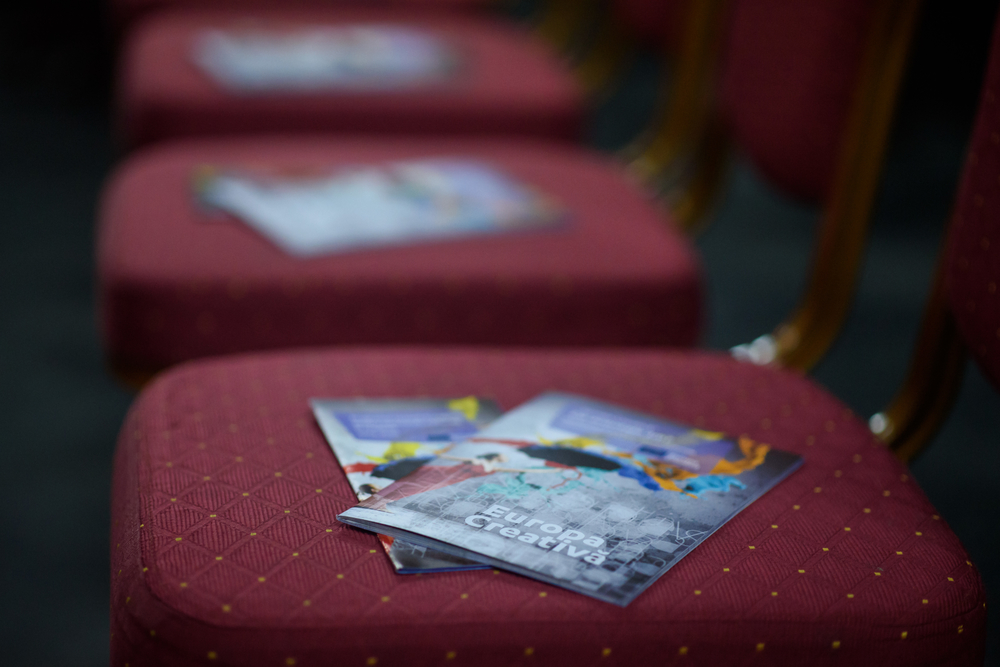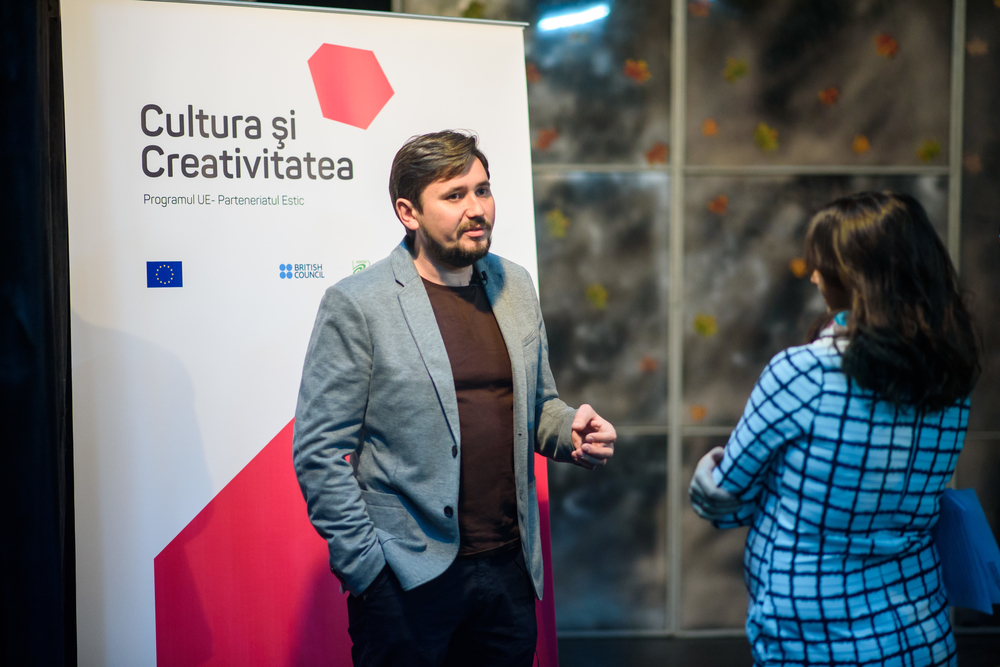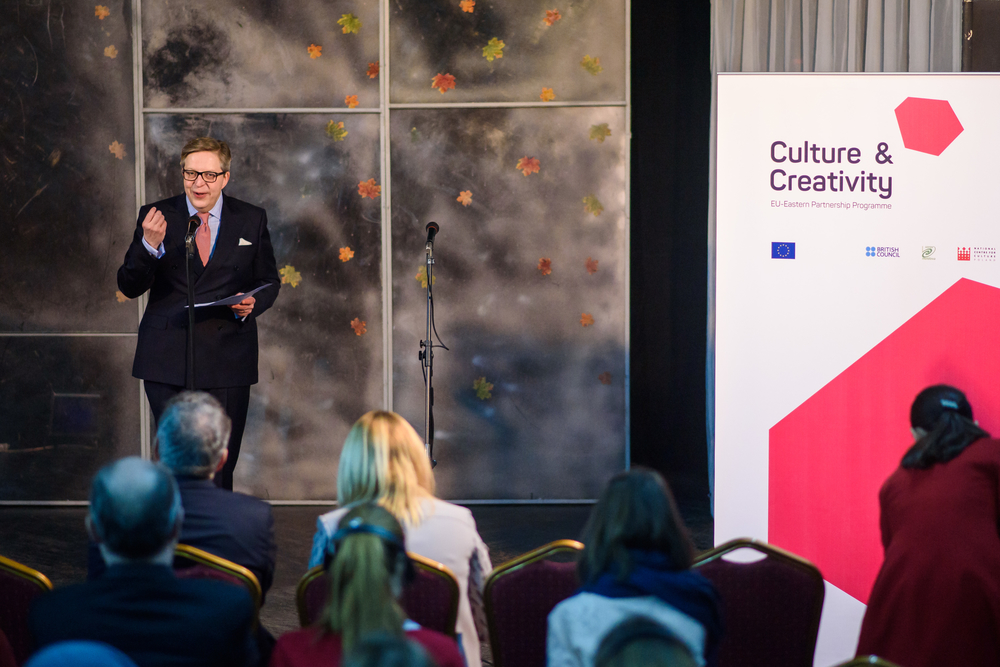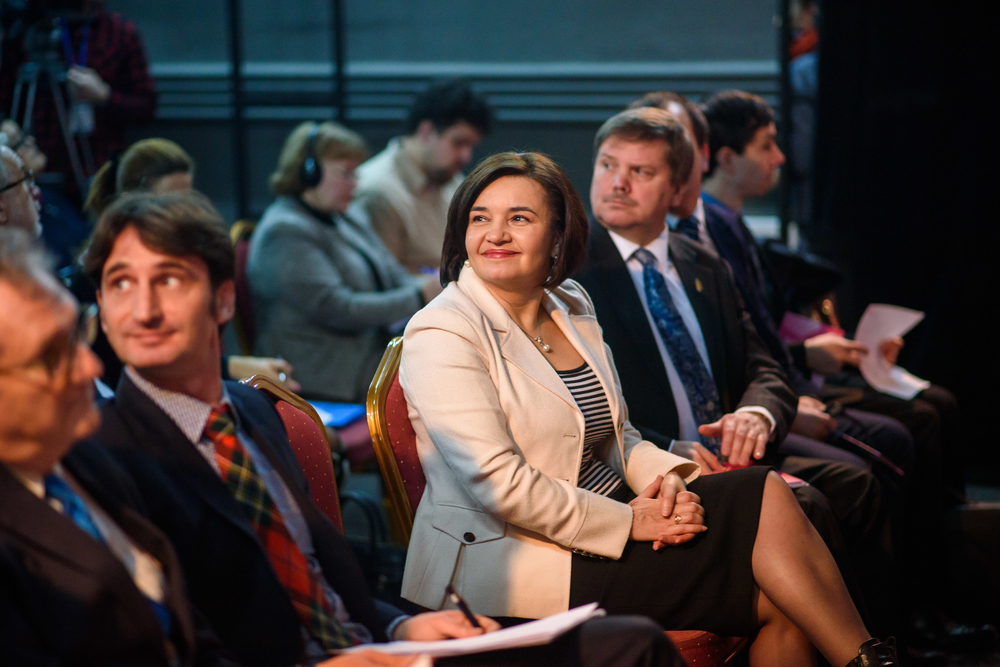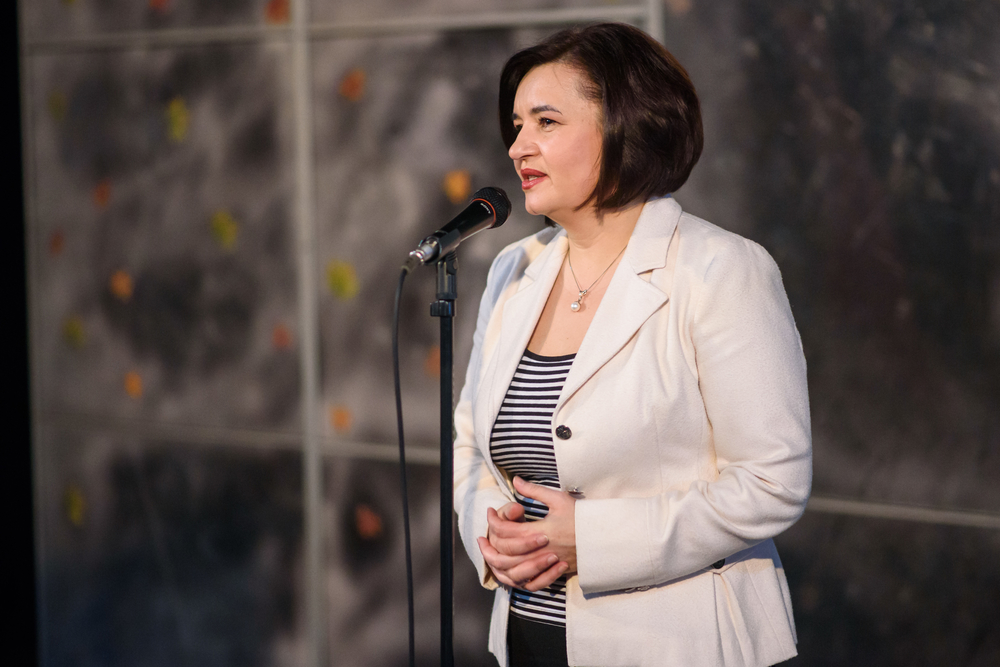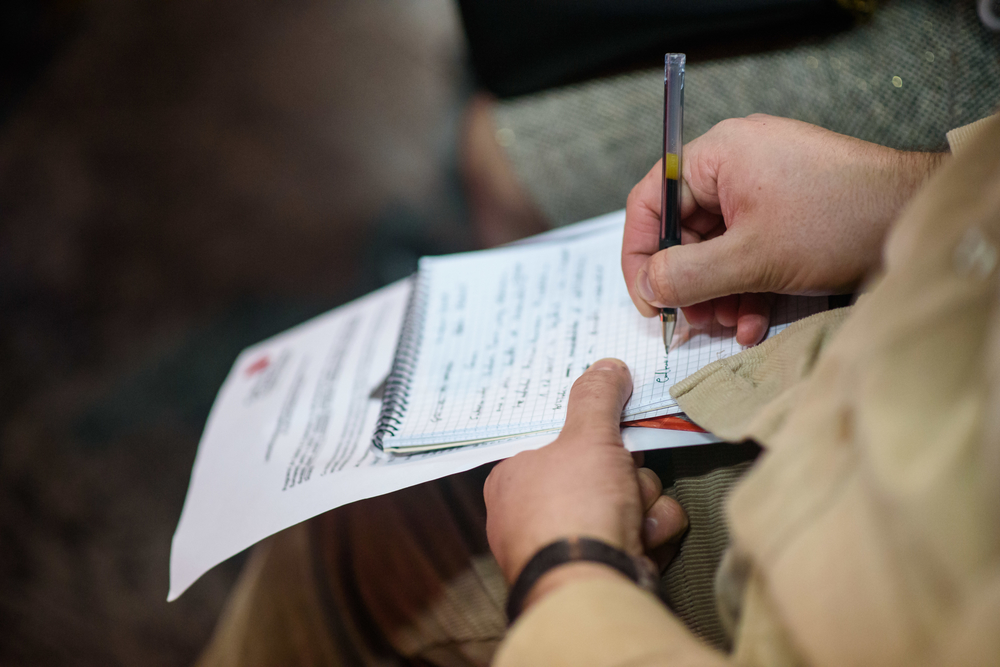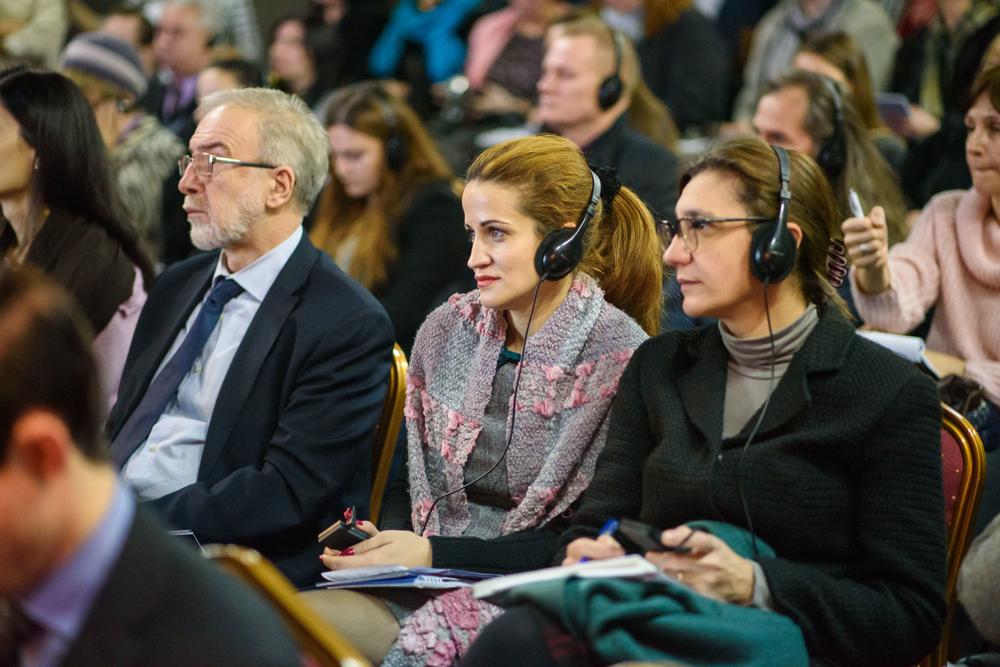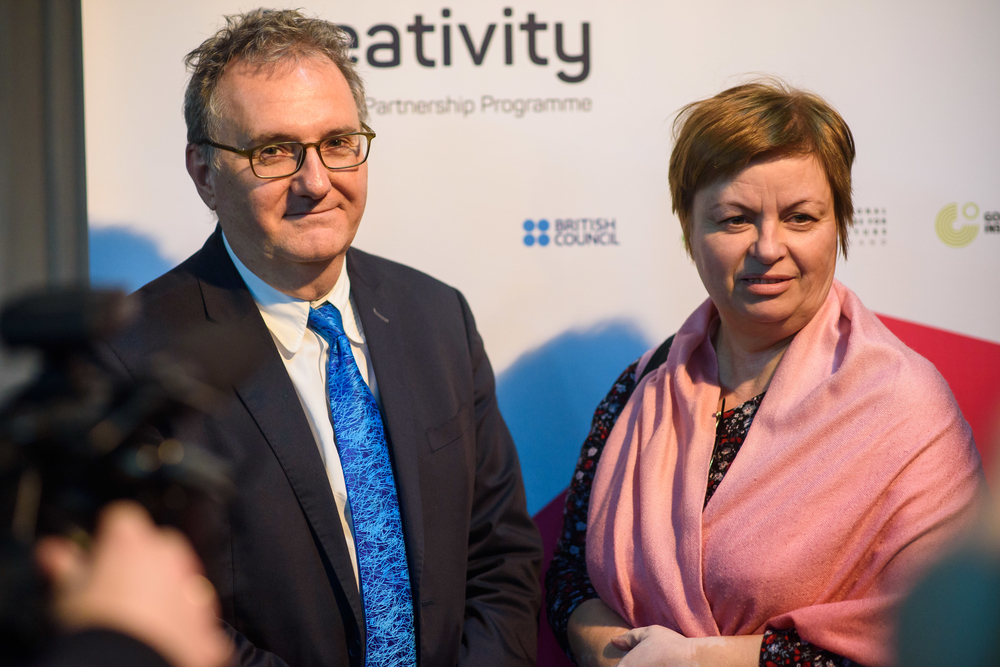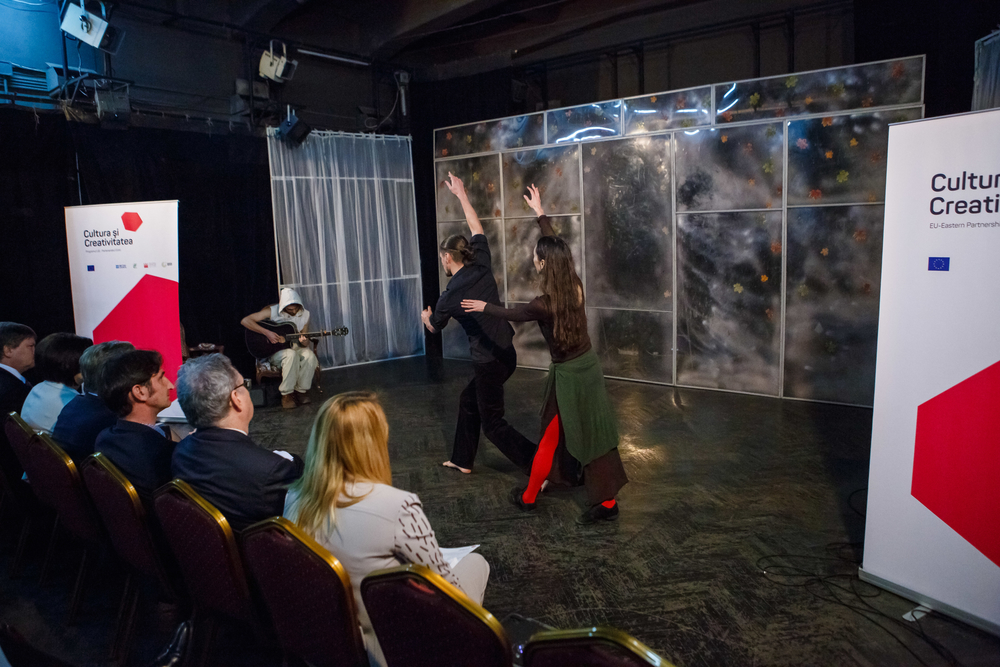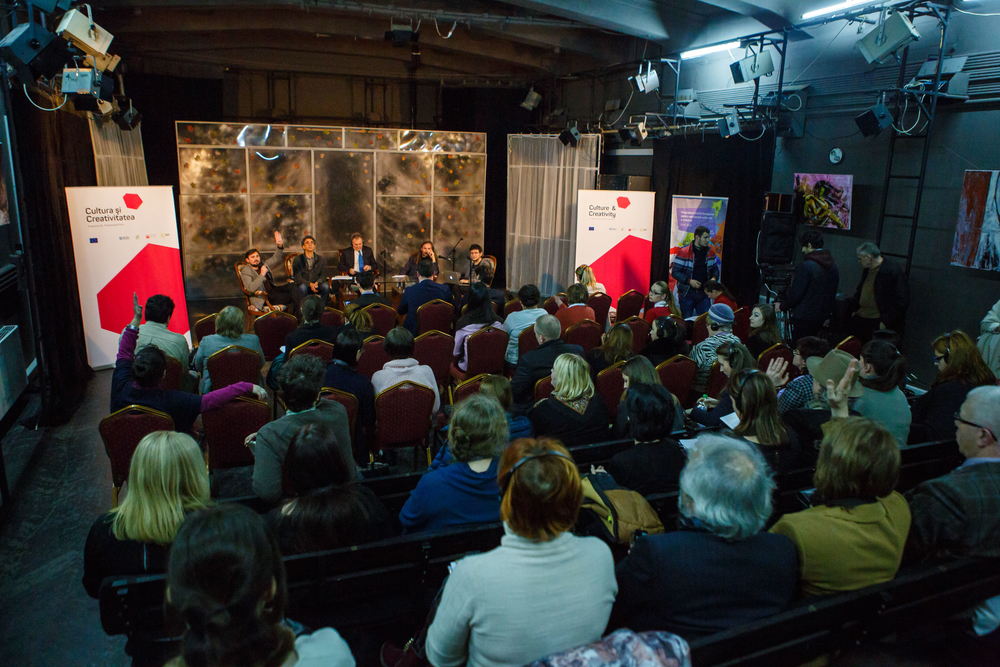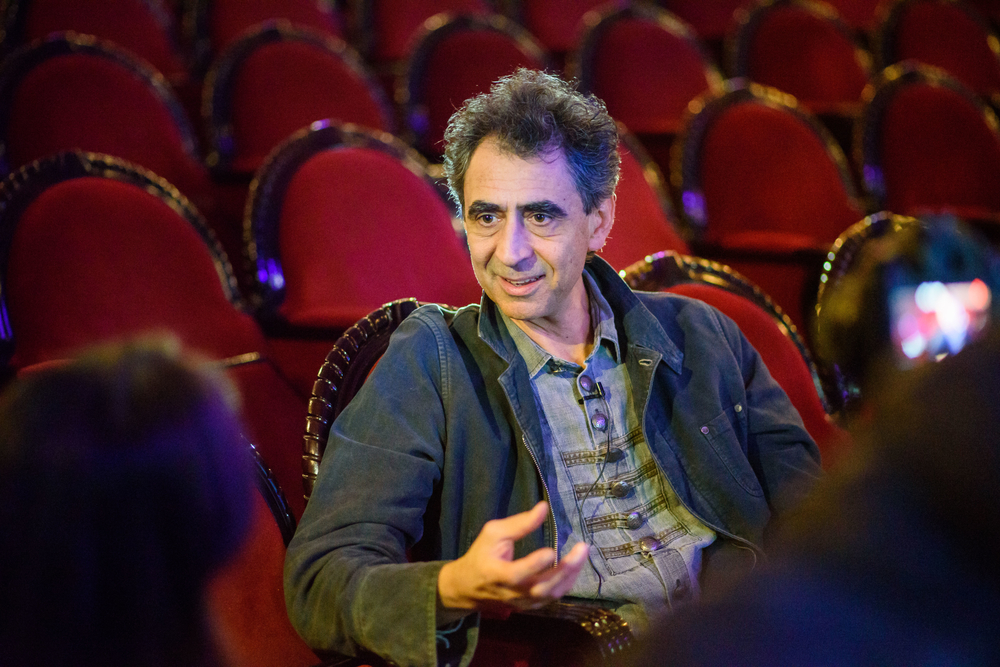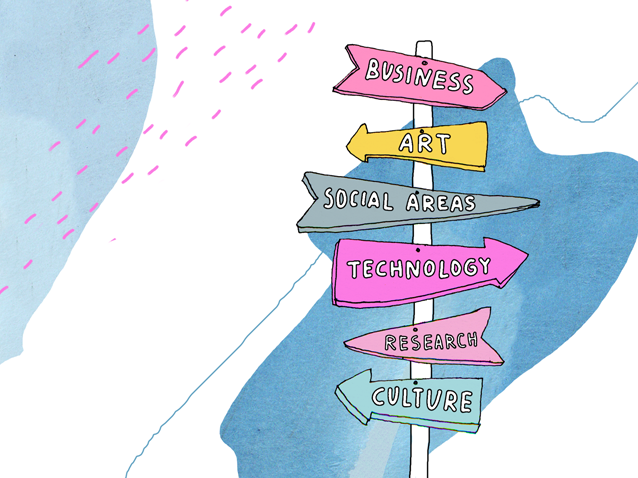
Culture and Creativity as a Vital Branch of the Economy: Immediate Possibilities and Long-term Solutions
The speakers focused, inter alia, on the decentralization of cultural policies, depoliticizing funding mechanisms of the authorities and rethinking the marketing strategies and creative management. Having a budget of over EUR 4 million, the EU-Eastern Partnership Culture and Creativity Programme was the key-point of the debates on funding, networking and competitiveness.
What is culture? (Re)definition of the concept
”I designed a small introductory course which is very topical, containing 7 lessons that you can receive by email, explaining the concepts of culture and creativity as they are understood now. (Anastasia Nurjinskaia, Communications Specialist of the EU-Eastern Partnership Culture and Creativity Programme)
”I think it is important to differentiate between the concept of art and culture because they are often confused. Art is represented by any concrete artistic work, be it a movie, a performance, a picture ... But culture means assuming art as a lifestyle, something that is more complex and larger.” (Mihai FUSU, director, actor, teacher of theater, founder of the documentary theater in Moldova, founder of Art Center Coliseum NGO, Manager of the Theatre Laboratory FOOSBOOK)
Connecting to the EU Dimension - a Priority
”Cultural actors must - besides the talent they have - adjust themselves to the European realities. They must know the economics in culture, handle the marketing in culture, know how to calculate the cost-effectiveness, how to fit into this European and international cultural movement, and primarily how to be competitive. And in this regard, we will continue our work at the Ministry of Culture because we have a strategy that was coordinated with our European colleagues.” (Monica Babuc, Minister of Culture)
”We will soon have an analysis that will show us what is the status of the accession of local organizations to European associations. Whether it's a matter of communication or the size of membership fees, I think we can get involved and solve these issues so that arts organizations from Moldova could become members of European associations.” (Tim Williams, Programme Director)
”I am glad that a part of the work that we will perform at Creative Europe Office will be supported by this programme of the European Union - Eastern Partnership related to the training and the relationships with different organizations. And we are pleased that this year, in March, we become part of the Creative Europe Programme, the most important EU programme for the cultural and creative sectors. We are glad that besides us, Georgia and Ukraine are also part of the Eastern Partnership. So we have the whole spectrum and all the possibilities to participate in the European Union Programme.” (Andrei Chistol, State Secretary, Ministry of Culture)
”What we have to do is to get us closer to EU. The translation of some important books into several European languages would be an important step. Many countries in Europe have become known and received the Nobel prize thanks to their huge investments in translations: Poland, Hungary... Hungary generally buys out major titles for the major publishers in France, Germany, etc. I hope very much that this translation programme will work both ways because only then we become connecting vessels with Europe.” (Emil GALAICU-PAUN, poet, writer and editor, member of the Writers' Union of Romania and the Writers' Union of the Republic of Moldova, editor-in-chief of Cartier Publishing Office)
Strengthening the Competitiveness and Funding Capacity of Creative Industry
”As long as we don't have a system that Europeans or any other country could understand, its functionality, its operating algorithm - I'm not referring to money or turnover, but how it works - as long as we don’t establish some pillars, some key institutions to be comprehensible to the European Union, we won't receive funding from them.” (Dumitru MARIAN, producer and distributor, President of the Association ”ALTFilm”, co-organizer of the Anim'est International Animated Film Festival)
”We have a problem with writing projects and establishing partnerships, but together with other embassies, we will organize these trainings, which would be more focused and comprehensible.” (Andrei Chistol)
Key Issues: Outdated Mentality and Lack of Institutional Capacities
”To change our artistic direction the generations need to change first. Some directors have been managing the theaters for over 20-25 years, and they do it the same way as when they were young. But they have run out of energy and remained only with their principles and vision. Out theater participates neither in important European festivals nor regional events. If we made an honest evaluation, we would have the impression that all performances are made by one and the same person. I wonder who is the author of these performances? I think that the author is the banality, boredom, lack of love and time for the creative process.” (Mihai Fusu)
”Eradication of piracy is a crucial component to have film distribution. The Cultural producer must have space to work unimpeded. Today, for example, you can not bring movies in the Republic of Moldova, because all of them are available on the Internet.” (Dumitru Marian)
”We need to identify people who can think, ask, speak English, and know how to write a project. We need an institution that can communicate with people who know how things are done. I’ve heard people from the cultural sector, even from the ministry, wondering why we need this National Film Center, because money is needed rather pay pensions and other social payments. The worst part is that our culture is perceived mainly from the consumption perspective. As long as we cannot overcome this mentality, nothing will develop.” (Dumitru Marian)
The State, Managerial Policy Maker and nothing more
”The Ministry of Culture does not need to organize festivals. The State should support the cultural organizations, especially those that want to make money from it, people who want that this activity becomes a full-time job.” (Dumitru Marian)
”We need to change the management of the theater system. Managers should necessarily be chosen through the competition and not to be appointed. And every theater needs well-established Terms of Reference, developed by the Ministry of Culture. A country without artists is sad, but without a smart and reliable management policy, the artists can neither perform, nor survive, nor ensure continuity.” (Mihai Fusu)
Cultural Management by Establishing Intermediate Entities
”If we talk about the National Film Center that should be set up in the Republic of Moldova, it should not have 130 officials, as the NFC from France. It should have two, three, four, five officials. But during one year these officials, this center will bring investments into RM in the form of co-productions, ticket sales, which will be 15 times higher than initial investments in the operational and administrative costs that the Republic of Moldova would spend today to maintain this Center.” (Dumitru Marian)
”However, the State's role is not to interfere in the management, but to support it. Furthermore, an independent body should be created to provide financing and to be closer to actual needs.” (Mihai Fusu)
Young Artists, a Special Potential
”We have an unsatisfactory artistic education at the Art Academy, which does not prepare young artists. It does not prepare them to be skilful to manifest themselves, to develop in a European environment. There is also a lack of an art market that would provide artists with their own income, so that they will not be forced to go to another area, to re-qualify themselves or to emigrate.
This requires the development of a proper infrastructure, mobility, international cooperation programmes to exchange experience with the colleagues from other countries and to adjust our artistic education. Only then we will have new artists who will produce relevant works to our relevant context.” (Vladimir Us, curator, visual artist, director of Oberlicht Association, professor at the College of Arts “Igor Vieru”)
Cultural Mapping
”One solution would be to develop some cultural strategies for all settlements, municipalities, towns of Moldova. Each municipality and town should work out its own strategy. As Chisinau has a strategy for the public transport sector, there should be one for culture. A strategy could map and assess different resources available at the local level and mechanisms to engage local stakeholders, use the local resources and bring to light some important things from a settlement.” (Vladimir Us)
Value of the EU Assistance for the Republic of Moldova
”This project of the European Union with the Eastern Partnership places the culture among the core factors of sustainable, economic and social development of the country. This will be done by empowering artists to obtain grants, funding of their projects, which - undoubtedly - will be a success, including a commercial success.” (Monica Babuc)

